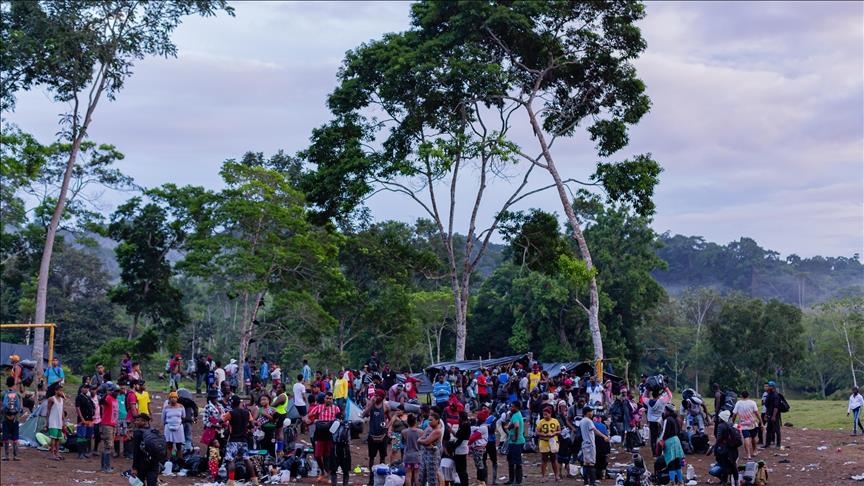Newly-installed Panamanian President Jose Raul Mulino, US agreed to repatriate migrants
Laura Gamba Fadul |06.07.2024

BOGOTA, Colombia
The decision by Panama's new President Jose Raul Mulino to build barbed fences in the Darien Gap to block migrants has caused tensions with Colombian authorities on Friday.
The Colombian Ombudsman's Office warned the measure “will affect the rights” of migrants and urged the government to ask Panamanian authorities to comply with the human rights of those crossing the Darien stretch.
The government must ensure "shelter, accessibility to basic needs and guarantees of non-refoulement of migrants eligible for asylum and in need of international protection," it said.
Colombian authorities also expressed concern about the possibility of migrants piling up in Colombian cities from where thousands of migrants dare to undertake the journey to the US every year.
Photographs published by migrants on social media show the fence consisting of several barbed wires that are nailed to trees, which has prevented their passage to Panama.
Under a deal with Mulino, the US agreed to cover the costs of repatriation of migrants who enter Panama illegally.
The agreement, signed by US Homeland Security Secretary Alejandro Mayorkas, seeks to reduce the number of migrants “smuggled through the Darién, usually en route to the United States, the White House said in a statement.
In his first address as president on July 1, Mulino promised to find solutions to what he described as a costly “humanitarian and environmental crisis.”
“I will not allow Panama to be a path open to thousands of people who enter our country illegally, supported by an entire international organization related to drug trafficking and human trafficking,” he said.
Juanita Goebertus, director for the Americas for Human Rights Watch criticized the decision.
“Not only is it physically impracticable due to the geography and the lack of binational territorial control of the border, but it also generates an additional risk of serious violations of the human rights of migrants and asylum seekers,” said Goebertus.
More than 197,000 people have risked their lives by crossing the jungle from January to June 2024, where they face criminal organizations, wild animals and dangerous landscapes. Most of the migrants crossing the stretch of land are from Venezuela, Ecuador, Colombia and China.
No comments:
Post a Comment